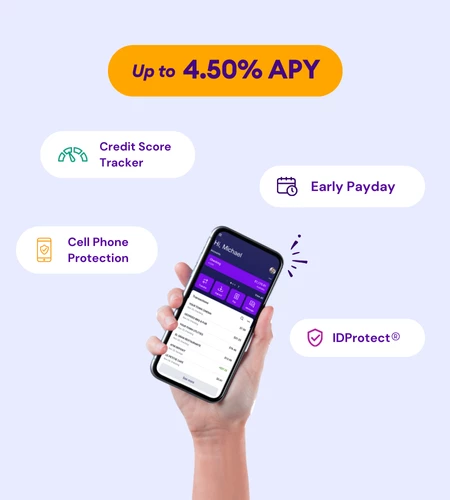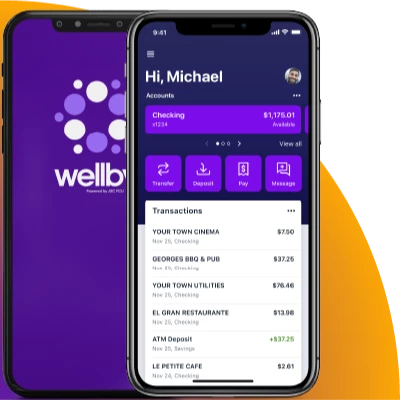February 6, 2025 | by Brian Truong

15 Mortgage Terms You Should Know Before Applying For A Home Loan
August 8, 2022
By Chad Carpenter
 Buying a home is a big decision to make. Every year, millions of new homeowners decide it's time to buy a home, but many are unfamiliar with the home buying process and the nuances of applying for a mortgage. Knowing when is the right time to buy a home for you and your family can be an easy decision. However, actually purchasing a home by way of a mortgage is more complex than the initial decision-making process.
Buying a home is a big decision to make. Every year, millions of new homeowners decide it's time to buy a home, but many are unfamiliar with the home buying process and the nuances of applying for a mortgage. Knowing when is the right time to buy a home for you and your family can be an easy decision. However, actually purchasing a home by way of a mortgage is more complex than the initial decision-making process.
A mortgage is a financial loan through which you can become a homeowner and pay off the home's cost over time. The mortgage terms, therefore, will be with you for a long time and will dictate how you'll repay the loan. This is a document you want to be familiar with, which means understanding the terms used by lenders when they talk about mortgages.
Don't let the financial jargon slow you down or keep you from purchasing your dream home. Here's a quick glossary of the top 15 mortgage terms you should know before you start the home-buying process.
Common Mortgage Terms
These top 15 mortgage terms are commonly used throughout the lending process. They refer to the typical language you'll encounter in a mortgage loan and during the financial side of the home buying process. By learning these terms and understanding how they fit into different mortgage offers, you can make the best decision for you, your family, and of course, your budget.
1. Amortize/Amortization
Amortization is the paying off of a mortgage over time. To amortize something is to pay off the initial cost at regular intervals gradually. When your loan talks about amortization, this will typically refer to your "mortgage repayment schedule."
2. Annual Percentage Rate (APR)
APR stands for Annual Percentage Rate. This is your full view of the mortgage, as it includes the interest rate and closing costs in the calculation when estimating the cost of a mortgage over time.
3. Appraisal
Before issuing a loan, a bank typically sends an appraiser to perform an appraisal. This is a value-based inspection that will determine the Fair Market Value of a house. The appraisal protects the bank from lending more to buy a house than the house is worth.
4. Closing Costs
Closing costs are the myriad of expenses paid after you sign the home buying contract - that are not included in your mortgage. Closing costs for the home buyer included title check and transfer, closing escrow costs, paying the appraiser, inspectors, and contract lawyer, notary fees, utility hookups, official record filing courthouse fees, lender fees, and HOA (Homeowners Association) dues. Fortunately, your initial home insurance and property taxes should be covered by the escrow funds.
 5. Debt-to-Income Ratio
5. Debt-to-Income Ratio
Debt-to-income ratio is a calculation of your borrowing power. It is the ratio of your current income to your current debt. While income increases your borrowing power, debt is considered a subtraction from your ability to take on further debt based on your current income.
6. Down Payment
The down payment is the amount of money you pay up-front to buy a house. The down payment is also your initial equity in the house and is paid free of interest riders. The higher your down payment, the lower your mortgage interest rate will typically be.
First-time home buyers often pay well below 10% with federally subsidized mortgage loans. Everyone who pays less than 20% must pay PMI or Private Mortgage Insurance until they reach 20% equity. We'll discuss PMI later in the article.
7. Earnest Money
Earnest money, also known as a good faith deposit, is included as part of the purchase agreement when an offer is made on a home. It shows that the buyer is serious about purchasing the home.
8. Equity
Equity is the percentage of the house that you have paid for and fully own. Your percentage of equity starts as your down payment and increases over time with each mortgage payment, minus the interest payment.
9. Escrow
Escrow refers to the account that holds the earnest money. An escrow account protects the buyer and the seller, holding the deposit until the transaction closes. Commonly referred to as "in escrow." If the buyer backs out, the seller normally gets to keep the money. With a successful home purchase and closing, the deposit will be applied to the buyer's down payment.
10. Fixed/Adjustable-Rate Mortgage
A fixed-rate mortgage (FRM) charges the same interest rate for the entire duration of the loan.
An adjustable-rate mortgage (ARM) can reset the interest rate at the end of the initial term. Adjustable-rate mortgages often start with lower interest rates, but that can change over time.

11. Interest Rate
The interest rate is your payment to the bank. The percentage on top of your home's value is paid as the cost of the loan. For example, if your home costs $300,000 and your interest rate is 5%, your total interest payments will equal about $15,000
12. Points
Mortgage points are fees that you pay ahead of time for a lower interest rate. It's an alternative way to get a lower rate that is not a higher down payment. Points can sometimes significantly reduce both monthly payment amounts and the total amount paid in interest.
13. Principal
The principal is the outstanding balance on your mortgage. This is the amount you have left to pay according to your loan agreement.
14. Private Mortgage Insurance (PMI)
Private mortgage insurance or PMI is insurance you pay when your down payment and/or equity is below 20%. PMI protects the lender and pays the rest of your mortgage if you default on the loan for any reason. Once you reach 20% equity, you can remove your PMI policy.
15. Term
The term of a mortgage is the length of the loan agreement. Typical mortgage terms are 15-year and 30-year mortgages.
Ready to Talk About Mortgages?
When you're ready to buy a new home, the next step is speaking to a mortgage specialist. Knowing these key terms can help you better understand the conversations you'll have with your specialist and review your offer with an eye for what is most beneficial for your finances and your family.
We love to see a new homebuyer who knows the terms and is ready to negotiate on terms, but of course, your specialist will be more than happy to answer any questions and explain your loan in detail. Learning the common terminology can help you confidently approach the mortgage process and feel more knowledgeable when it comes time to apply.
Related Topics
Chad Carpenter hails from Dallas, Texas, and lived in Denver, Colorado, for 15 years before landing in Houston. Chad has over 20 years of marketing and SEO experience, including several years in the agency world. When he’s not clacking away on his keyboard optimizing Wellby's digital presence, digging into data, or immersed in AI, Chad enjoys good food, good friends, and good movies (just don’t expect him to watch any in interactive 4D). Chad has two cats, one that loves him and one who is aloof.
Related articles you might like
December 23, 2024 | by The Team at Wellby
Budgeting 101: Comparing Fixed and Variable Costs
December 12, 2024 | by The Team at Wellby






